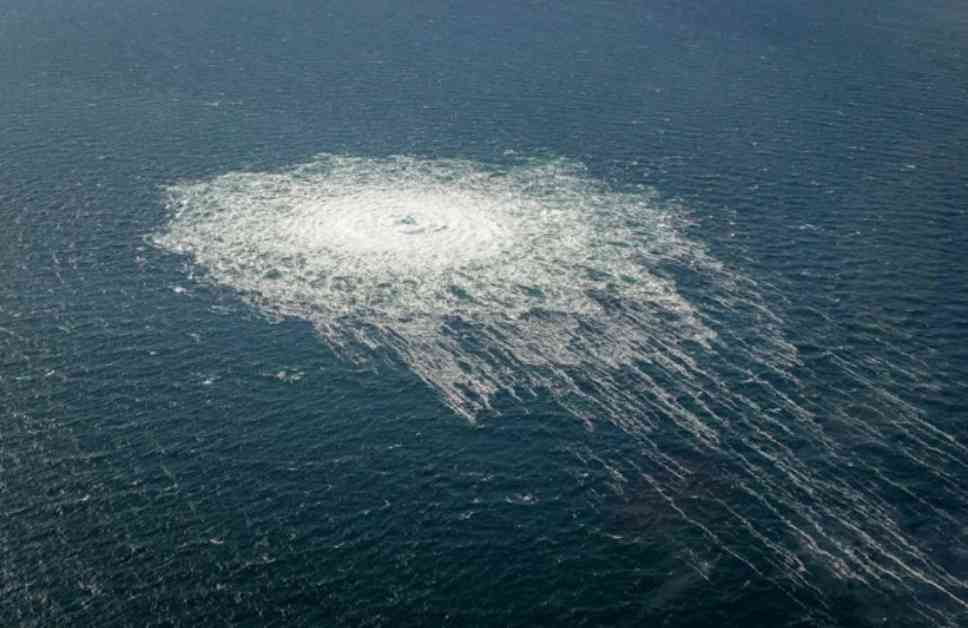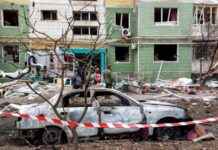Ukraine’s Alleged Involvement in Nord Stream Explosions: A Detailed Analysis
In the aftermath of explosions that damaged the Nord Stream 2 gas pipeline, Ukraine has been at the center of controversy as fresh allegations have surfaced regarding their possible involvement in the sabotage. The incident, which occurred in September 2022, raised questions about the motives behind the attack and the parties responsible for orchestrating it. While Ukraine has vehemently denied any involvement in the explosions, a new report has shed light on a potential connection between the Ukrainian government and the operation.
Denial of Involvement by Ukraine
Mykhailo Podolyak, an adviser to Ukraine’s president, has categorically denied the allegations of his country’s involvement in the Nord Stream explosions. Instead, he pointed the finger at Russia, citing the extensive technical and financial resources required to carry out such an act. Podolyak’s comments to Reuters emphasized that only Russia possessed the capabilities necessary for such an operation at the time of the bombings. This denial underscores Ukraine’s position on the matter and highlights the ongoing tensions between Ukraine and Russia in the region.
Speculation and Accusations
Speculation surrounding the Nord Stream explosions has been rife, with various parties offering different narratives about the incident. Both Ukraine and Russia have denied any involvement in the sabotage, further complicating the situation. The recent report by The Wall Street Journal, however, has brought new allegations to light, implicating Ukraine’s top military commander at the time, Valery Zaluzhny, in overseeing the plan to blow up the pipelines. This revelation has added a new layer of complexity to the situation, raising questions about Ukraine’s potential role in the explosions.
The European Arrest Warrant
Polish prosecutors recently revealed that Poland had received a European arrest warrant issued by Berlin in connection with the Nord Stream attack. The suspect, identified as a Ukrainian man named Volodymyr Z, had reportedly left Poland before he could be apprehended. Germany has alleged that the Ukrainian diving instructor was part of a team responsible for blowing up the pipelines, further fueling the accusations against Ukraine. The issuance of an arrest warrant in connection with the incident underscores the seriousness of the allegations and the need for a thorough investigation to determine the truth behind the attacks.
Investigations and Findings
Following the Nord Stream explosions, several countries, including Germany, Denmark, and Sweden, launched investigations into the incident to uncover the perpetrators and establish the motives behind the attacks. Traces of explosives were found on objects recovered from the explosion site, confirming that the blasts were deliberate acts of sabotage. The findings from these investigations have raised concerns about the security of critical infrastructure in the region and the potential implications of such attacks on energy security in Europe.
The Role of Senior Ukrainian Officials
The Wall Street Journal report detailed the alleged involvement of senior Ukrainian officials in approving the sabotage of the Nord Stream gas pipelines. President Volodymyr Zelensky was said to have initially supported the operation, which emerged during a meeting of senior military officers and businessmen in May 2022. The timing of the plan, coming just months after Russia’s invasion of Ukraine, has raised questions about the motivations behind the attacks and the implications for the ongoing conflict in the region.
The Cost and Execution of the Operation
According to the Journal report, the sabotage of the Nord Stream pipelines involved a team of six individuals who carried out the operation at a cost of around $300,000. The operation was privately financed and involved the use of a rented yacht to sail to the pipeline area and lay explosives. The meticulous planning and execution of the attack underscore the level of sophistication and coordination required to carry out such a complex operation. The details of the operation shed light on the intricacies of the sabotage and the challenges faced by investigators in uncovering the truth behind the attacks.
Involvement of the CIA
The involvement of the US Central Intelligence Agency (CIA) in the Nord Stream sabotage adds another layer of complexity to the situation. The report indicated that Zelensky initially approved the operation but was asked by the CIA to halt it before it could proceed. Despite the order to stop the operation, Valery Zaluzhny, the Ukrainian military commander at the time, reportedly pushed ahead with the plan, leading to the explosions. The role of the CIA in the events surrounding the Nord Stream attacks highlights the geopolitical implications of the sabotage and the complexities of international relations in the region.
Consequences of the Explosions
The sabotage of the Nord Stream gas pipelines had far-reaching consequences, cutting off Russian gas supplies to the lucrative European market. The economic impact of the explosions reverberated across Europe, raising concerns about energy security and the stability of gas supplies in the region. The disruptions caused by the attacks highlighted the vulnerabilities of critical infrastructure and the need for enhanced security measures to protect against future incidents of sabotage. The long-term implications of the Nord Stream explosions remain uncertain, with ongoing investigations seeking to unravel the complexities of the attacks and hold accountable those responsible for the sabotage.
The Fallout and Repercussions
The fallout from the Nord Stream explosions has sparked a diplomatic crisis, with accusations and denials flying between various countries involved in the incident. Russia, the United States, Britain, and Ukraine have all been implicated in the attacks, each denying any involvement and shifting blame onto other parties. The conflicting narratives and accusations have strained diplomatic relations and raised concerns about the potential for further escalation in the region. The repercussions of the Nord Stream attacks are likely to be felt for years to come, shaping the dynamics of energy security and international relations in Europe.
Conclusion
The Nord Stream explosions have exposed the complexities and challenges associated with energy security and critical infrastructure protection in Europe. The allegations of Ukrainian involvement in the attacks have raised questions about the motives behind the sabotage and the implications for the ongoing conflict in the region. As investigations continue to unfold, the truth behind the attacks remains elusive, with conflicting narratives and accusations clouding the path to accountability. The fallout from the Nord Stream explosions serves as a stark reminder of the fragility of energy supplies and the need for enhanced security measures to protect against future incidents of sabotage.




















